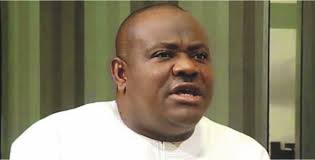Nigeria’s economic growth slowed in the first quarter even oil prices and production increased.
Gross domestic product expanded 1.95 percent in the three months through March from a year earlier, Abuja-based National Bureau of Statistics said in an emailed report Monday. That compares with a revised 2.1 percent in the fourth quarter.
While it accounts for only about 10 percent of GDP, oil generates the bulk of government revenue for Nigeria, the continent’s largest producer, and helped to prop up the economy. Output rose to 2 million barrels a day in the quarter, the most since the first quarter of 2016, according to the statistics bureau. The non-oil sector expanded 0.8 percent in the quarter.
The GDP expansion lags the 2.6 percent median estimate in a Bloomberg survey.
The first quarter’s numbers “are surprisingly weak,” Michael Famoroti, chief economist, Vetiva Capital Management Ltd., said by email. While this could make a case for the Monetary Policy Committee to ease borrowing costs to try and stimulate growth, “the best way to do this would be to further engender price and exchange-rate stability. Therefore, we do not expect the MPC to move for a rate cut on the back of these GDP figures,” he said.
The central bank has kept its key rate at a record 14 percent since July 2016. Governor Godwin Emefiele will announce the Monetary Policy Committee’s decision on Tuesday and all but four of the 15 economists in a Bloomberg survey said the panel will keep borrowing costs unchanged.
While growth slowed, GDP has now expanded for four straight quarters. The West African economy, which vies with South Africa to be the continent’s largest, contracted in 2016. It’s gaining some traction and a record 2018 budget that lawmakers approved last week will also support this. President Muhammadu Buhari still has to sign off the spending plans.
The IMF forecasts growth will accelerate to 2.1 percent this year from 0.8 percent in 2017.
[Bloomberg]














